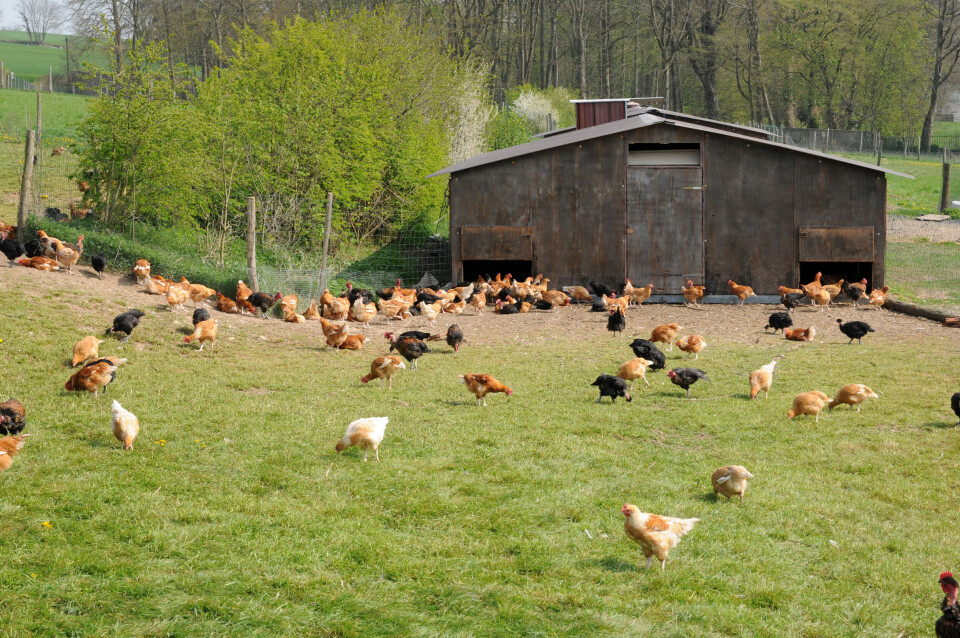-
Travellers risk extra costs under new Eurotunnel ticket rule
Some fare options are less flexible and less forgiving of lateness
-
May will be difficult month for train travel in France, warns minister
Two major train unions are threatening to strike and are ‘not willing to negotiate’, he says
-
Larousse dictionary adds 150 new French words - which ones do you know?
The new words come from trends in sport, nature, leisure, food, medicine, and the rest of the French-speaking world
France announces bird flu support fund for stricken poultry farmers
More than eight million birds have been culled in the department of Vendée alone, as an unprecedented strain of avian flu ‘massacres’ the western region

The French minister for agriculture is set to spend millions to help struggling poultry farmers in France as bird flu rips through the country, with more than eight million birds so far killed in Vendée alone.
The current flu outbreak is unprecedented, with figures from the Ministry of Agriculture showing that 554 farms out of 1,028 in the western department have been affected. More than 8.2 million birds in the department have been killed, including ducks, chickens, hens, and turkeys.
Minister for Agriculture Julien Denormandie, who visited Vendée (Pays de la Loire) last week, has pledged to help the sector with compensation, and said that “more than €2million has already been spent, and this is just the start” of the package to “help support and compensate farmers”.
The virus is spread mainly by migrating birds. It appeared in Vendée on February 26, after strong winds hit the area.
Joël Limouzin, a farmer from the Vendée region and vice-president of the Pays de la Loire Chamber of Agriculture, told Le Figaro: “Despite all the biosecurity efforts we have put in place, this very virulent strain has managed to spread by airborne means in the farm buildings, probably through the ventilation fans.”
Thierry Lumineau, a farmer from Pouzauges and president of the poultry section of the FNSEA in Vendée, said: “About three weeks ago, my 13,000 turkeys died in 72 hours. I couldn't do anything. It was terrifying.
“I am not the only one in this situation and I am trying, as a poultry union leader, to comfort all my colleagues who are also affected. In thirty-five years of work, this is the first time I have witnessed such a massacre.
“It's hard to live with, especially as we have to pay the water, electricity and feed bills needed to raise these animals, while there is no income.”
Virus hitting west harder than southwest
The virus had previously hit the southwest hardest, including in Landes, Gers, and Pyrénées-Atlantiques, but Mr Limouzin said that the flu is now reaching severe levels in the more northern, western region of Pays de la Loire - the second-largest poultry-producing region in France behind Brittany.
He said: “For more than a month, we have been experiencing an episode of avian flu three to four times more intense than in the southwest.”
Bird flu has hit poultry-producing regions of France, especially the southwest, repeatedly since 2015.
This season, the first case was reported on a farm in Gers on December 16, before spreading to Landes and Pyrenees-Atlantiques.
Thierry Vignolles, who breeds ducks in Landes, said: “Avian flu episode is behind us [here]. We will be able to restart the activity next April. For once, it is not our area that is the most affected in France.”
However, he added that his sympathy was with those “in the Vendée region”, as he has experienced the problem several times.
He said that the recurrent outbreaks “raise the question of animal vaccination”. He said: “It was done for humans during the Covid waves, so why not for poultry? This will avoid seeing millions of animals die in France and Europe. We don't work so hard only for that to happen.”
Virus contained?
For now, despite the destruction caused, the virus appears to have been contained in Vendée.
Mr Limouzin said that “only six new cases were reported” at the most recent prefectural meeting, and that neighbouring departments now appear to be much less affected.
He said that now, farms are waiting for a ministerial decree that will enable them to officially begin the “preventative slaughter of all poultry within a radius of 3 to 5 kilometres of the 250 strategic genetic selection sites for ducks, hens, turkeys and chickens that supply the whole of France”.
The buildings normally used to house the animals will then be disinfected, and no new animals housed there for several weeks. Then, if there are no new cases of bird flu in one month, the industry can restart.
Related articles
Avian flu: Over 2,700 ducks slaughtered in the Landes
Risk of bird flu rises to high in France, poultry must be kept inside
Bird Flu: 45 departments put on high alert
























